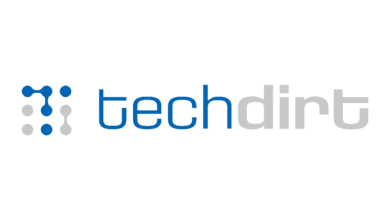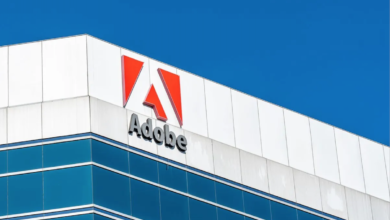7 Best Artificial Intelligence (AI) ETFs To Buy Now

getty
As proven by Nvidia’s performance over the last year, artificial intelligence (AI) investing has upside. One challenge, though, is identifying which business models will thrive in this new era of tech innovation. Fortunately, investors can mitigate the risk of choosing wrong by opting for an AI exchange-traded fund over individual stocks.
Let’s explore seven AI ETFs that can drive value in your portfolio as AI transforms the way things are done in business and at home.
AI ETFs Explained
AI ETFs are exchange-traded funds investing in companies that are positioned to benefit from growing AI adoption. These companies can be categorized as enablers, engagers and enhancers:
- Enablers supply core components for AI development, such as semiconductor or cloud computing infrastructure. Nvidia (NVDA), Taiwan Semiconductor (TSM) and Microsoft
MSFT
- Engagers incorporate AI technology into their core product offerings. Cyber security company Darktrace (DARK) uses machine learning for improved detection of and response to threats. ServiceNow
NOW
- Enhancers contribute to the AI ecosystem without directly selling AI solutions. Streaming entertainment and online advertising company Tencent Holdings (TCEHY) is an enhancer. Tencent uses AI to predict the popularity of gaming and content topics before production.
AI funds may include one, two or all three types of AI stocks, depending on the ETF’s strategy. Many also combine AI stocks with robotics companies, since those two disciplines are closely related.
A common goal for investing in AI ETFs is long-term growth. Most of these funds do pay a small dividend, but income is not the headlining feature. Investors interested in regular income should see our list of monthly dividend ETFs instead.
Methodology For Choosing These ETFs
These best AI ETFs were chosen for their efficient expense ratios, net asset values and portfolio diversity. Specifically, they meet these qualifications:
- Expense ratio no larger than 0.65%
- Net assets greater than $250 million
- At least 70 different stocks in the portfolio
The brain trust at Forbes has run the numbers, conducted the research, and done the analysis to come up with some of the best places for you to make money in 2024. Download Forbes’ most popular report, 12 Stocks To Buy Now.
7 Best AI ETFs To Buy Now
This table introduces seven large AI ETFs with expense ratios ranging from 0.10% to 0.65%. Below the table, there’s a brief discussion of each fund’s investing strategy and key advantages.
Table data source: Fund websites
1. Vanguard Information Technology ETF
VGT
VGT
VGT by the numbers:
- Share price: $538.55
- Expense ratio: 0.10%
- Inception date: 01/26/2004
- Year-to-date return: 10.3%
- Number of holdings: 313
- 30-day SEC yield: 0.58%
VGT Overview
VGT invests in leading technology stocks by tracking the MSCI U.S. Investable Market Information Technology Index. Neither the fund nor the index targets AI stocks specifically, but the tech focus naturally creates solid AI exposure.
Why VGT ETF Is A Top Choice
VGT, like other Vanguard ETFs, is known for its low expense ratio and high quality. VGT is a well-diversified technology fund that holds some of the biggest names in AI, including Microsoft, Nvidia and Broadcom
AVGO
VGT is the largest fund on this list. It also has a strong track record, generating a 10-year average annual NAV return of 19.8%.
2. Fidelity MSCI Information Technology Index ETF
FTEC
FTEC
FTEC by the numbers:
- Share price: $159.82
- Expense ratio: 0.084%
- Inception date: 10/21/2013
- Year-to-date return: 10.4%
- Number of holdings: 304
- 30-day SEC yield: 0.57%
FTEC Overview
FTEC tracks the MSCI USA IMI Information Technology Index, which favors U.S. large-cap stocks.
Why FTEC ETF Is A Top Choice
FTEC’s top holdings list overlaps with VGT’s. Both funds contain S&P 500 constituents Microsoft, Apple
AAPL
Semiconductor companies comprise nearly a third (30%) of FTEC’s portfolio. Systems software stocks and technology hardware stocks make up 25% and 20% of the portfolio, respectively.
3. SPDR S&P Kensho New Economies Composite ETF (KOMP)
KOMP by the numbers:
- Share price: $47.68
- Expense ratio: 0.20%
- Inception date: 10/22/2018
- Year-to-date return: 2.2%
- Number of holdings: 435
- 30-day SEC yield: 0.94%
KOMP Overview
KOMP tracks the S&P 500 Kensho New Economies Composite Index. The index includes companies pursuing transformative innovation in robotics, automation, AI, connectedness and processing power.
Why KOMP ETF Is A Top Choice
KOMP departs from the popular focus on mega cap tech stocks, which is a good thing for investors who want to limit their concentration in Microsoft, Apple, Nvidia and the like. The fund’s top stock is Leidos Holdings (LDOS), which works in defense and aerospace providing AI, cybersecurity and digital transformation services to its customers. Other top KOMP positions are Coinbase (COIN), Teledyne Technologies
TDY
KOMP’s portfolio is 84% U.S. stocks, but includes exposure to China, Canada, Israel, Hong Kong, Brazil and others.
Stop chasing shadows in the market. Forbes’ expert analysts have pinpointed the 12 superstars poised to ignite returns in 2024. Don’t miss out—download 12 Stocks To Buy Now and claim your front-row seat to the coming boom.
4. iShares Robotics and AI Multisector ETF
IRBO
IRBO
IRBO by the numbers:
- Share price: $34.48
- Expense ratio: 0.47%
- Inception date: 8/26/2018
- Year-to-date return: 0.1%
- Number of holdings: 109
- 30-day SEC yield: 0.51%
IRBO Overview
IRBO tracks the NYSE FactSet Global Robotics and Artificial Intelligence Index. The index includes companies in developed and emerging markets that are poised to grow with increased adoption of robotics and AI technologies.
Why IRBO ETF Is A Top Choice
The IRBO portfolio includes companies that either enable or use robotics and AI technologies.
No stock in IRBO comprises more than 3% of the portfolio. This strategy prevents excess concentration in larger, potentially overvalued stocks like Nvidia. The negative is that when a big company spikes, IRBO shareholders see a lesser impact. On the other hand, IRBO’s low weighting does create a window for shareholders to benefit from rallies in smaller stocks.
5. First Trust Nasdaq AI and Robotics ETF
ROBT
ROBT
ROBT by the numbers:
- Share price: $43.84
- Expense ratio: 0.65%
- Inception date: 02/21/2018
- Year-to-date return: -4.0%
- Number of holdings: 108
- 30-day SEC yield: 0.24%
ROBT Overview
ROBT tracks the Nasdaq CTA Artificial Intelligence and Robotics Index. The index invests in companies at all levels of the AI and robotics value chains.
Why ROBT ETF Is A Top Choice
ROBT takes a broad view on AI exposure by investing in enablers, engagers and enhancers. The portfolio includes at least the top 30 stocks in each category in terms of AI involvement. Stocks are then weighted so that enablers collectively comprise 25% of the portfolio, engagers comprise 60% and enhancers comprise 15%.
Every company in the portfolio has a minimum market cap of $250 million and a minimum average trading volume of $3 million.
6. Defiance Quantum ETF
QTUM
QTUM
QTUM by the numbers:
- Share price: $61.57
- Expense ratio: 0.40%
- Inception date: 09/04/2018
- Year-to-date return: 13.6%
- Number of holdings: 71
- 30-day SEC yield: 1.0%
QTUM Overview
QTUM tracks the BlueStar Quantum Computing and Machine Learning Index. Quantum computing embeds the principles of quantum theory into algorithms and hardware to accommodate tasks that are too big for classic supercomputers.
Why QTUM ETF Is A Top Choice
The QTUM portfolio focuses on companies that enable quantum computing, which extends the limits of what AI and machine learning can accomplish. These stocks include makers of hardware, connectivity solutions and cooling systems plus companies that collect and manage big data. Top holdings include business intelligence provider Microstrategy (MSTR), memory chip maker Micron Technology
MU
7. Invesco AI and Next Gen Software (IGPT)
IGPT by the numbers:
- Share price: $45.39
- Expense ratio: 0.61%
- Inception date: 06/23/2005
- Year-to-date return: 16.5%
- Number of holdings: 98
- 30-day SEC yield: -0.1%
IGPT Overview
IGPT tracks the STOXX World AC NexGen Software Development Index. The index features companies that earn direct revenue supporting software development.
Why IGPT ETF Is A Top Choice
AI and automation technologies are driving an expansion of the global software market. Grand View Research expects to see an 11.5% CAGR in software worldwide through 2030. That prediction makes a case for investing in software development enablers via IGPT. The fund’s holdings include a mix of small, medium and large companies across the value and growth spectrum.
Alphabet comprises more than 10% of the fund, which may present an overconcentration issue next to S&P 500 and large-cap tech funds.
Bottom Line
Investors have their pick of AI portfolios with expense ratios as low as 0.084%. Some AI ETFs focus on mega-cap stocks and therefore overlap with S&P 500 funds and similar core holdings. That could be an advantage or disadvantage, depending on the investor’s strategy. Those who prefer to add something new to their asset mix might consider KOMP, IRBO and QTUM over VGT or FTEC.
Read Next
The brain trust at Forbes has run the numbers, conducted the research, and done the analysis to come up with some of the best places for you to make money in 2024. Download Forbes’ most popular report, 12 Stocks To Buy Now.



